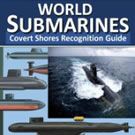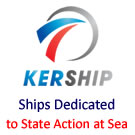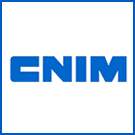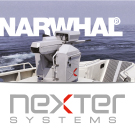 The CMS 330 has also been chosen in Canada for the Arctic Offshore Patrol Ship. |
|||
NR: Which combat system do you propose?
AEGIS or COMBATS21, one derivative or something completely new? Is it
platform agnostic?
LMC: Lockheed Martin Canada is eager to compete for the role of Combat System Integrator for the Royal Canadian Navy’s new fleet of surface combatant vessels. Canada has yet to release the complete set of requirements, therefore it is not possible to fully determine our final solution at this stage. However, we anticipate that our solution will be based upon our existing Canadian solution - Lockheed Martin Canada’s Command Management System 330. CMS 330, a derivative of a Lockheed Martin Canada legacy product, was developed as a result of more than 30 years’ experience and knowledge of Canadian and NATO naval operations. CMS 330 is an open architecture design which is adaptable to a variety of subsystems and designs to reduce risk and ensure delivery of unique customer requirements. The system offers an extensive set of defence capabilities and features. The CMS 330 is successfully deployed in Canada on the Halifax Class frigates and has been chosen in Canada for the Arctic Offshore Patrol Ship and in New Zealand for the ANZAC Frigate upgrade. NR: Lockheed Martin upgraded the combat systems aboard the Halifax class. Do you see that as an advantage for you for the CSC program? LMC: Building on our 30-year legacy as Canada’s naval combat systems integrator, we believe we have the right mix of capabilities to work closely with the Government of Canada and Irving Shipbuilding to design and integrate a combat system that will serve the Royal Canadian Navy’s future operational requirements. Our business has a large, established infrastructure already in place to deliver on the critical demands of highly complex procurements and program management. We look forward to providing a comprehensive proposal for Canada’s consideration, and will certainly highlight our Canadian capability and experience, like the HCM program. On HCM, our team facilitated a collaborative approach from the outset to reduce project risk and build effective partnerships with all stakeholders. The overall management and success of the program has proven to be an excellent partnership model for future shipbuilding projects, and has been recognized internationally. The experience gained from these programs has enabled our Canadian-based combat management solution, CMS 330, to win the highly competitive program to upgrade the New Zealand ANZAC Class Frigates. We have also leveraged this solution to support the Arctic/Offshore Patrol Ships (AOPS) as the Command and Surveillance Integrator. The skill and depth of our existing Canadian workforce continues to drive results for our customers and is an excellent example of how performance on Canadian defence contracts can lead to delivering high-value jobs and enduring economic value to Canada. |
|||
 Halifax-class frigate operations room (CIC), prior modernization. Picture: Royal Canadian Navy |
|||
Public Services and Procurement Canada announced on
November 18, 2015 the results of the pre-qualification process, the first
step in the competitive procurement process to select a Combat Systems
Integrator and a Warship Designer for the Canadian Surface Combatant (CSC).
For the Combat Systems Integrator, the pre-qualified firms are: » Atlas Elektronik GmbH » DCNS SA » Lockheed Martin Canada » Saab Australia Pty Ltd. » Selex ES S.p.A. » Thales Nederland B.V. » ThyssenKrupp Marine Systems GmbH For the Warship Designer, the pre-qualified firms are: » Alion-JJMA Corp. » BAE Systems Surface Ships Limited » DCNS SA » Fincantieri S.p.A. Naval Vessels Business Unit » Navantia SA » Odense Maritime Technology » ThyssenKrupp Marine Systems GmbH On 20 January 2015, it was announced that Irving Shipbuilding had been named the prime contractor for the program. |
|||
Q&A with Lockheed Martin Canada Regarding the Canadian Surface Combatant (CSC) Program
- Posted On











